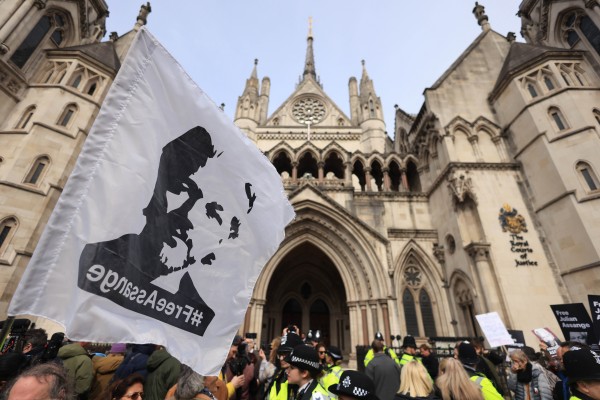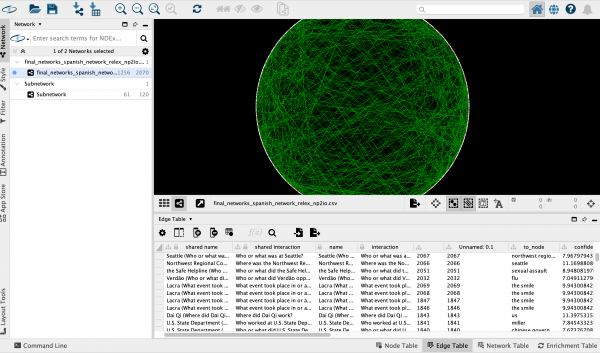One month after the Salvadoran online news site El Faro published a report that unleashed a storm of controversy in the country and prompted threats against its journalists, the International Press Institute (IPI) called today upon the government of El Salvador to take effective measures to protect press freedom in the country.
IPI is dismayed at the fact that, four weeks after the threats were made public, and despite the fact that the apparent risks have not diminished, authorities appear to remain content with issuing vague statements promising to protect El Faro’s staff. At this time, no concrete action has been taken to guarantee the safety of the site’s journalists.
On March 14, El Faro published an investigation entitled “Government negotiated with gangs for reduction of homicides” which reported an alleged agreement under which, in exchange for relocating the leaders of the Mara Salvatrucha and Barrio 18 gangs from maximum-security prisons to other jails, the number of murders in the country would be reduced.
Two days after the publication of the report, the editor and founder of El Faro, Carlos Dada, stated via CNN and El País that El Faro employees were in danger. He told media outlets as well as IPI that the country’s Justice and Security Minister, David Munguía Payés, had said in a meeting with media leaders that El Faro journalists were at risk, and had recalled the fate of Christian Poveda, a documentary filmmaker murdered in September 2009. El Faro sources inside the country’s intelligence service have also recently warned the paper of threats against it.
Dada told IPI that El Faro journalists had already been in danger prior to last month’s publication. Intelligence sources had warned of possible retaliation by the Texis cartel over an investigation El Faro published last May that covered the cartel and its alleged links to politicians, business owners, judges, police officers, mayors, and gang members. Since the publication of that article, El Faro journalists have been watched and followed by unknown individuals who have also taken photographs of them, apparently in order to find out the site’s sources.
When Minister Munguia on March 17 met with Dada to tell him that the gangs’ leaders were upset by the publication and had plans to harm El Faro, the editor took advantage of the opportunity to communicate another topic of concern: the fact that state intelligence agents had allegedly been following El Faro journalists. “The minister said that he had no knowledge of that and, although we did not request protection, he didn’t offer that either,” Dada explained.
In the midst of the upheaval sparked by the online site’s initial investigative report, the gangs directly threatened El Faro on Mar. 22. “We are people who play with life, mostly with our own because we have nothing to lose, but we consider it strange that there exist people like the journalist Carlos Dada, who bathe themselves in purity and professionalism, and who try to play with our lives and with those of so many other innocent people with their perverse and false accusations without considering that the only thing that they accomplish is to put themselves in the same low moral standing that they say we inhabit,” spokesmen for Mara Salvatrucha and Pandilla 18 said in a public written statement. In the document, they labelled El Faro’s work “irresponsible, tendentious, perverse, and hardly professional.”
Salvadoran President Mauricio Funes’s spokesman, David Rivas, told the Committee to Protect Journalists (CPJ) recently that the government would guarantee protection for El Faro. Asked about that promise this week, Carlos Dada told IPI: “That has not translated into any concrete action nor in any direct communication with us.”
El Faro received the 2011 Maria Moors Cabot prize for excellence in journalism from Columbia University, which called El Faro “a digital newspaper that is opening a path of ethics and independence in Central America.” Among other recognitions garnered since its founding in 1998, last year El Faro was awarded the Ortega y Gasset Journalism Prize, administered by the Spanish newspaper El País.
Through its coverage of organised crime, El Faro has over the past few years developed links with sources in a variety of sectors, including the government, who often request anonymity. According to Dada, at the end of last year, authorities began “a witch-hunt against those who had collaborated with El Faro, producing mass firings of intelligence agents.” He added that the same persecution continues to occur.
“We urge the authorities to take the threats against El Faro extremely seriously,” said IPI Acting Deputy Director Anthony Mills. “The news outlet has been reporting on topics that lie squarely in the public interest. It is the responsibility of the state to act as a matter of urgency on the threats directed at El Faro, and in so doing send a signal that it will not allow journalists to be targeted because of their work.”
El Faro has continued reporting on the negotiations and the decline in the number of murders in one of the most violent countries in the world. According to the daily El Mundo, public safety authorities announced yesterday that while in January and February of this year there were 411 and 402 homicides, respectively, in March the count was 255 and that, following the trend, in April it would be 175. This would represent a decline of around 50% and coincides with the gangs’ truce, although minister Munguía again denied the negotiations.
According to a March 25 editorial and statements Dada made to IPI, El Faro has sought to obtain official versions of the topics it is investigating, but officials are refusing to give the paper interviews. “We have made it clear that we are not the news and that we don’t want to be the protagonists. We have not tried to make ourselves the victims, but although the risks we are facing aren’t in our pages, that doesn’t mean we have deactivated the alarms,” Dada told IPI.
The editor and founder of El Faro views the delicate situation that has emerged in the country as a clear step backward for press freedom. “Since the signing of the peace agreement [that ended the country’s civil war in 1992], El Salvador has worked hard to protect press freedom,” Dada emphasised. “I want to make it clear that this [the type of situation facing El Faro] wasn’t happening in El Salvador. We expect that there exist guarantees for the free exercise of the press, [and] that the government fulfils its duties.”
After reports this week suggested, erroneously, that Dada had been forced into exile, the journalist published a column yesterday in which he explained that he had only left the country in order to meet, in Panama, with the OAS and UN rapporteurs for freedom of expression.
According to IPI’s 2010 annual press freedom report, which focused specifically on Latin America, in spite of the approval of a freedom of information law, since the beginning of the Funes presidency there has been a lack of transparency in the president’s office. “IPI urges Funes, as a leader and as a journalist himself, to not only ensure that the killings of, and threats and attacks against, his colleagues are investigated, but also to act in accordance with his own training as a journalist and remember the importance of a well-informed society, even if in some cases journalism makes those in power uncomfortable,” Mills added.
Statistics from IPI’s Death Watch show that four journalists have been murdered in El Salvador over the last decade. Among them was Christian Poveda who, after living together with Mara 18 to produce the documentary “La vida loca”, was killed in 2009.


